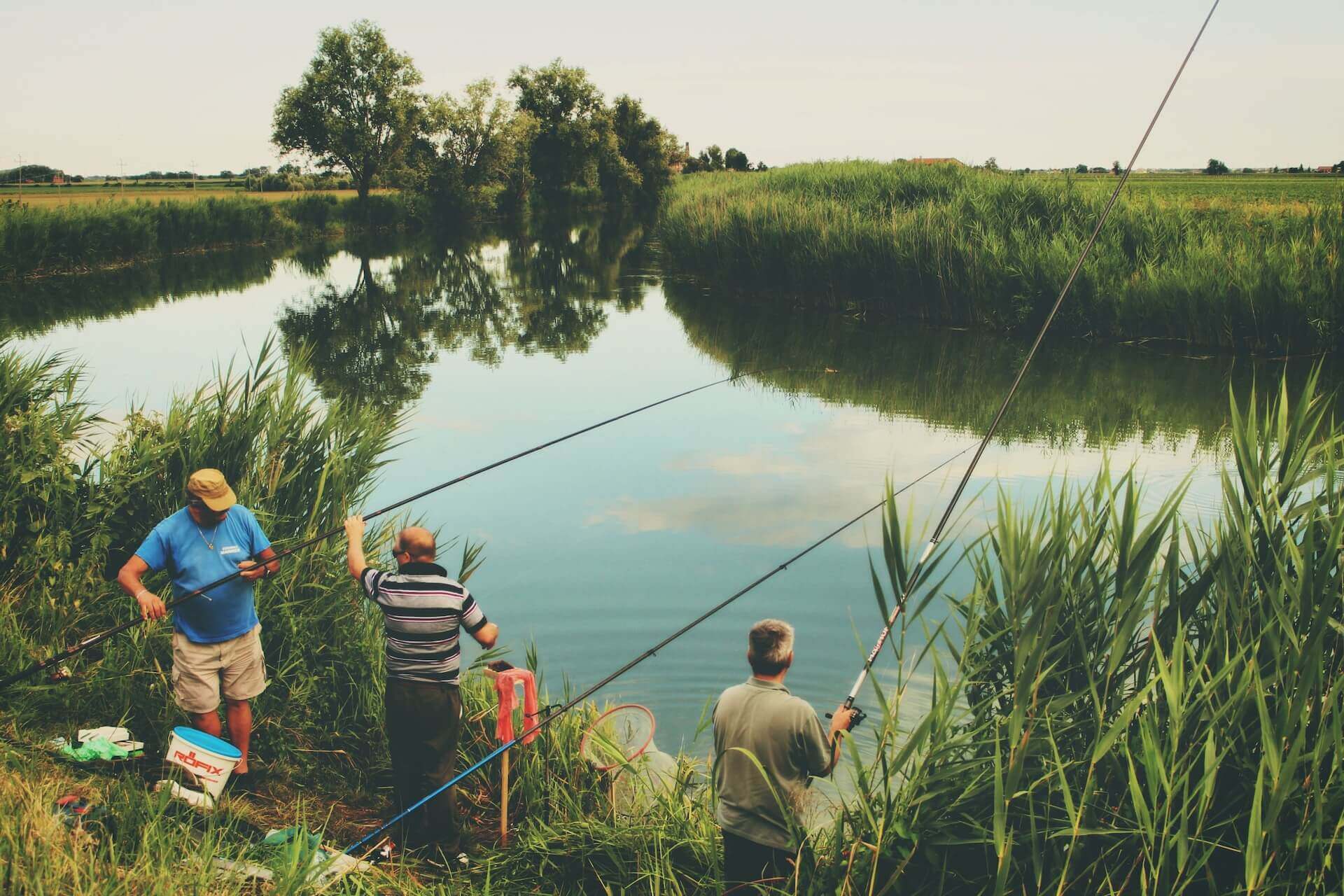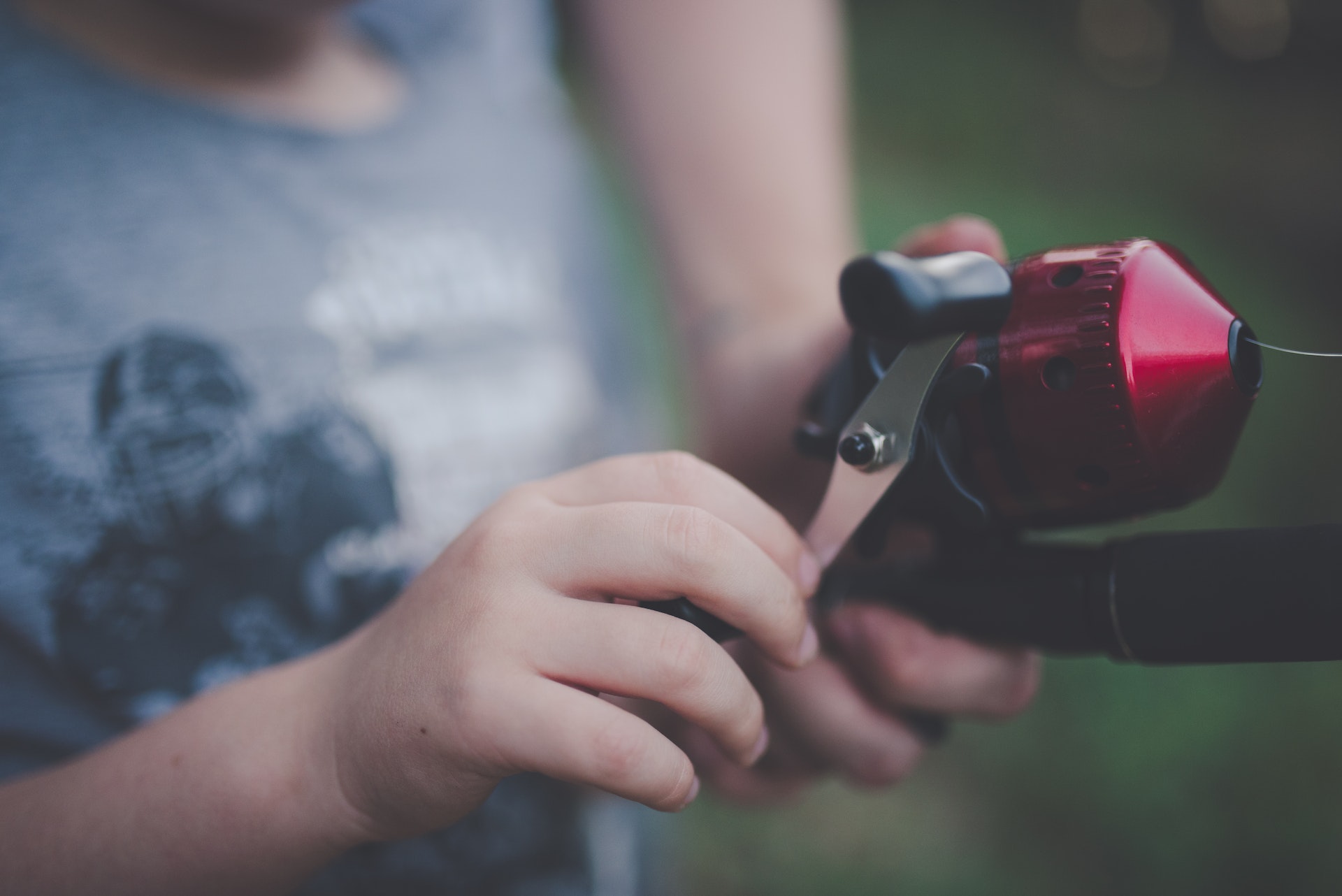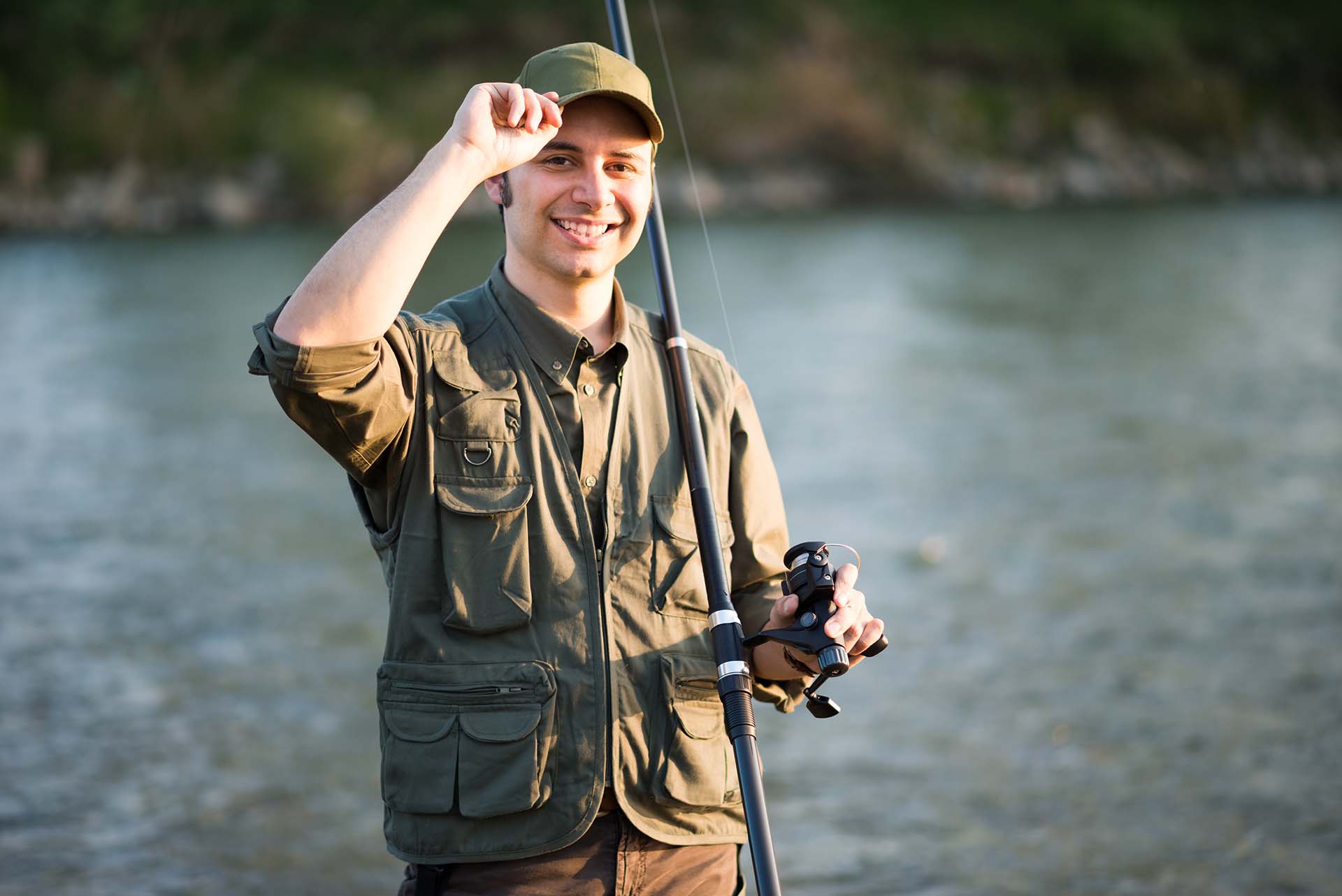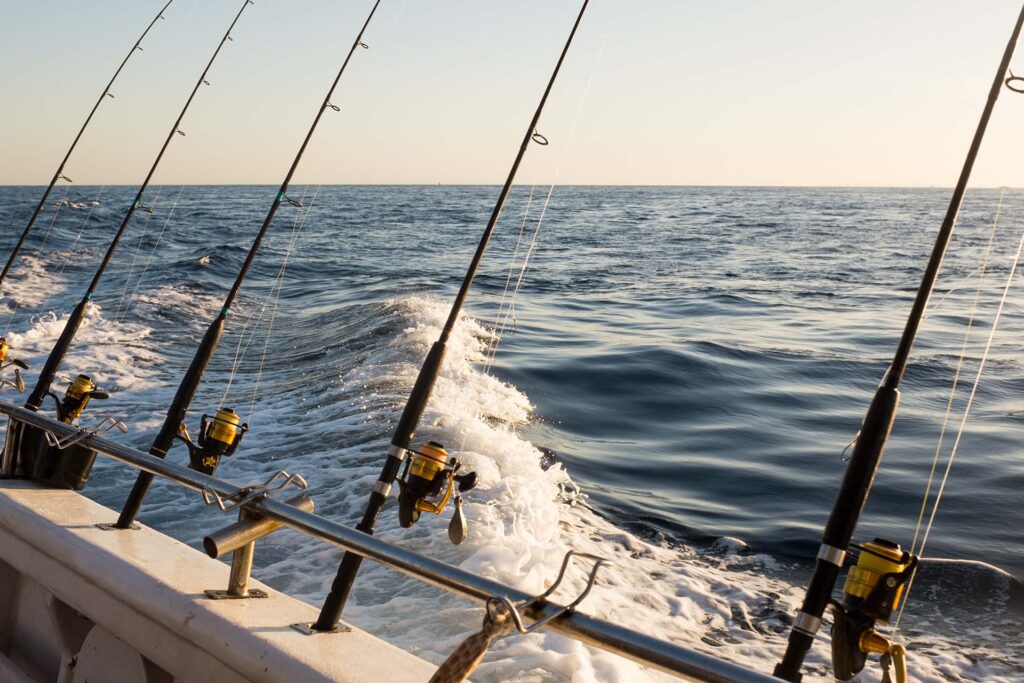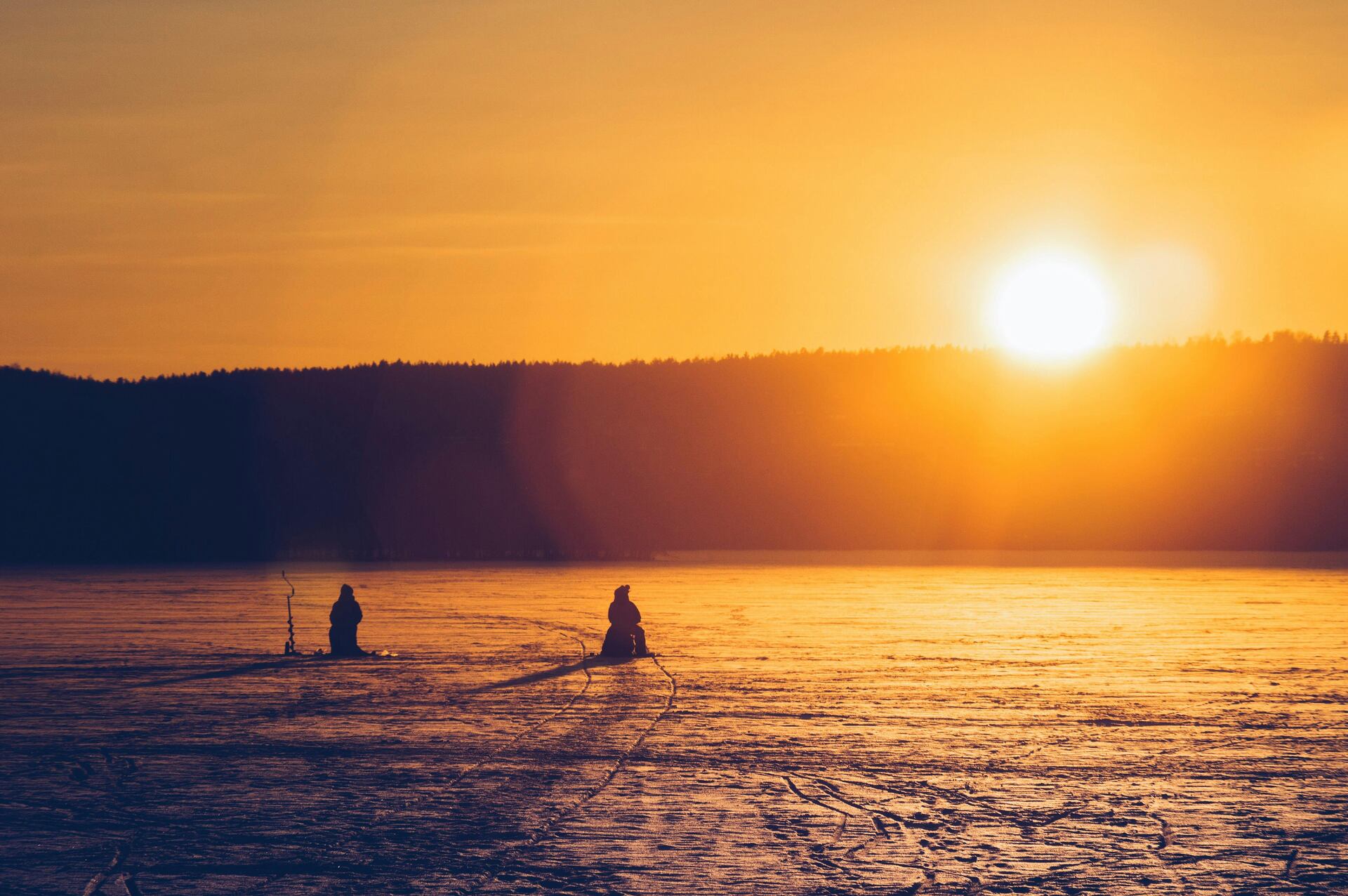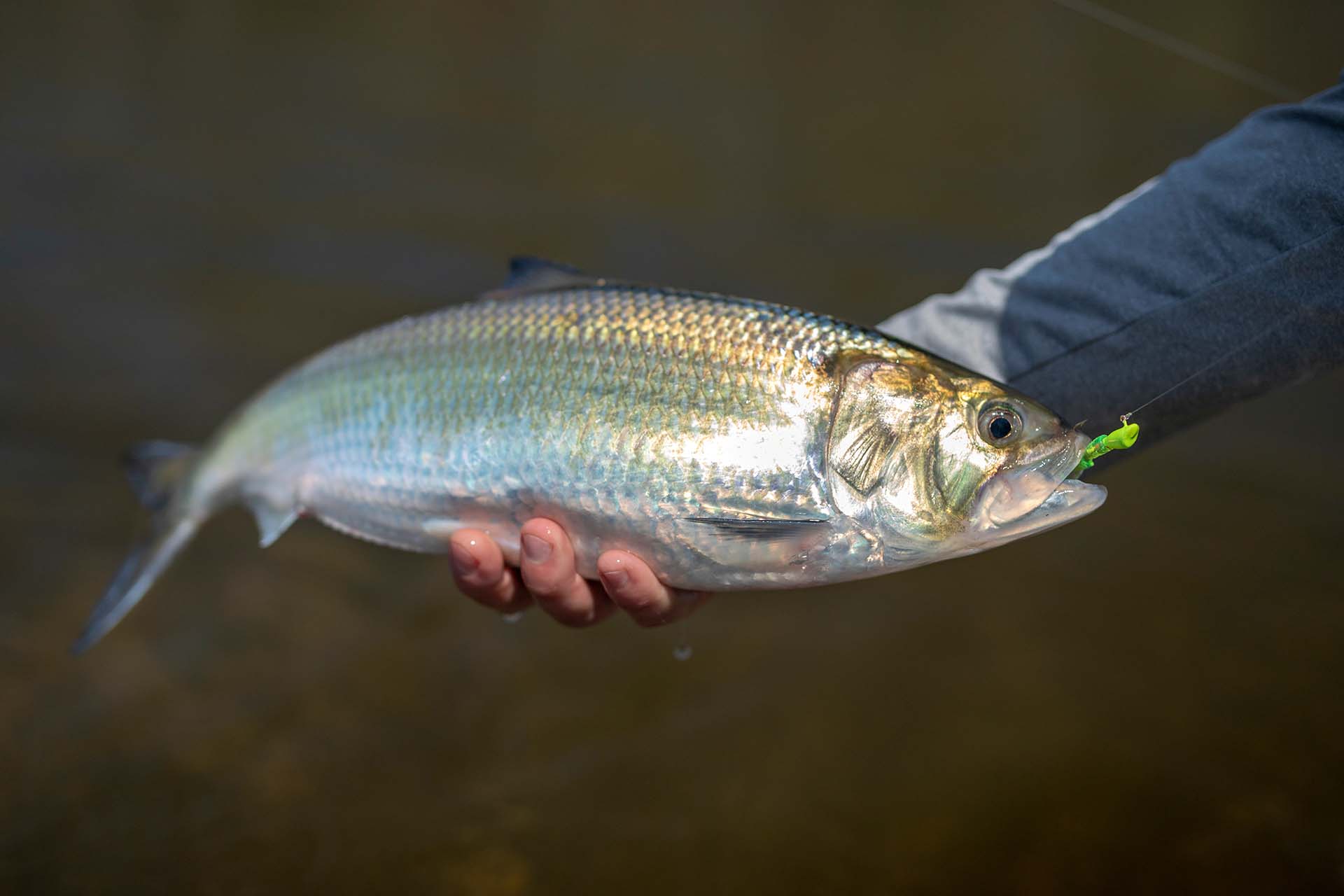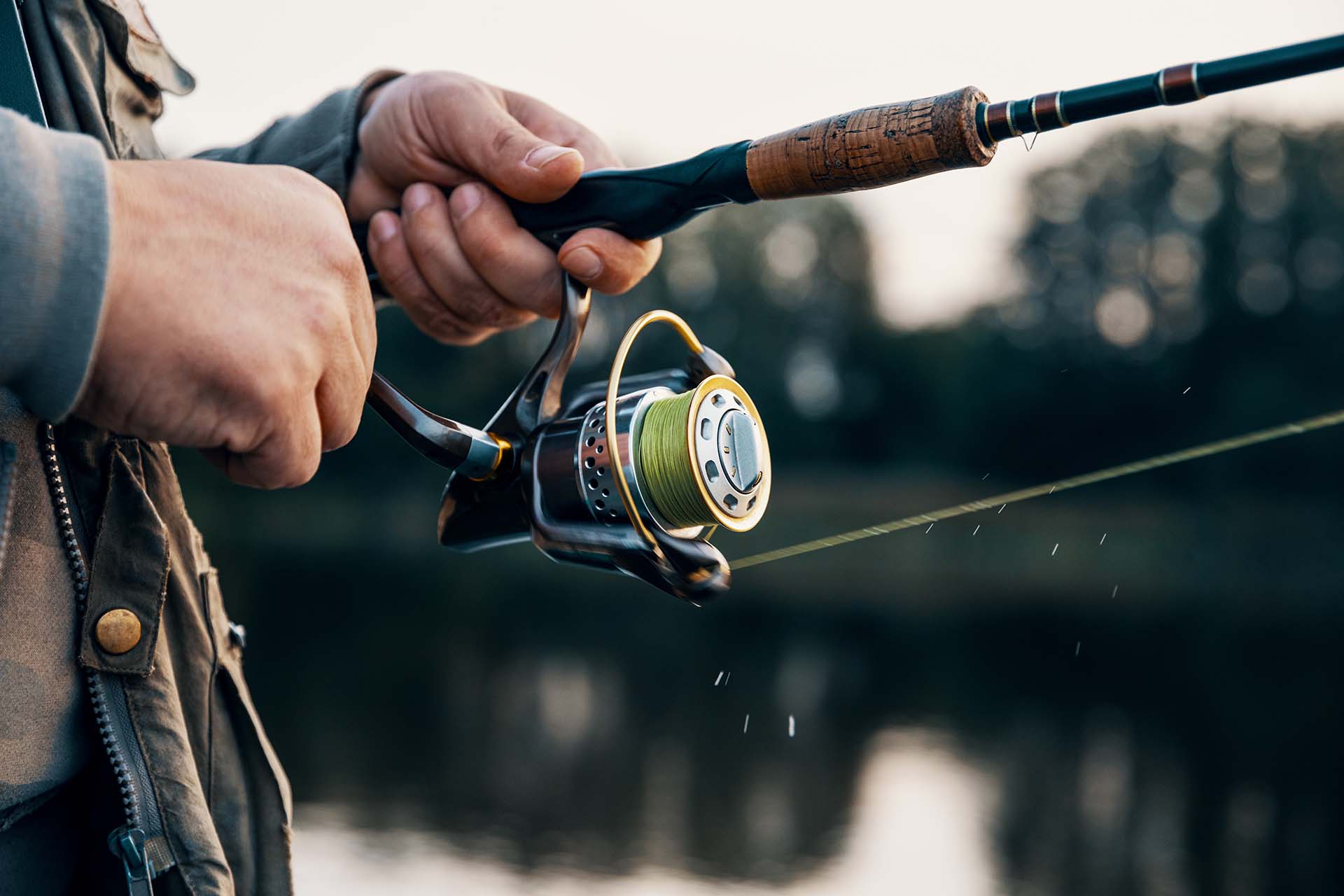No one can deny that chance and luck play a big role in fishing – but true fishermen can’t rely solely on them. The truth is, the more you’re familiar with the right fishing conditions, the more success you’ll have. But what is the best time to go saltwater fly fishing? If you’re new to the wonders of the fishing world (or simply want to check and improve your existing knowledge), here is all you need to know.
Although the best time for saltwater fly fishing may depend on the species you’re after, there are some general tips you should consider for a better experience. You need to consider a change in water levels, lunar phases, passing fronts, migration patterns, and water temperature. The most success you should have between April and October, during strong incoming tides and right before a front comes. As for the time of the day, dusk and dawn are the two most obvious choices – but the best time of the day for saltwater fly-fishing can depend on the seasons during which you’re fishing.
What Is Fly Fishing – The Basics
Fly fishing is a style of fishing that involves specialized equipment (fly fishing rod, weights line, and a fishing reel) and artificial flies. It’s a style most people use when fishing in freshwater, but keep in mind that it can bring you a broad array of fish in saltwater, as well.
You probably know the saying, “If you teach a man to fish, you feed him for a lifetime” – just keep in mind that it’s not that simple when it comes to fly fishing. Although it can help you catch an abundance of fish, it’s actually a fishing style that demands the most skill. But with great effort, a great reward will come!
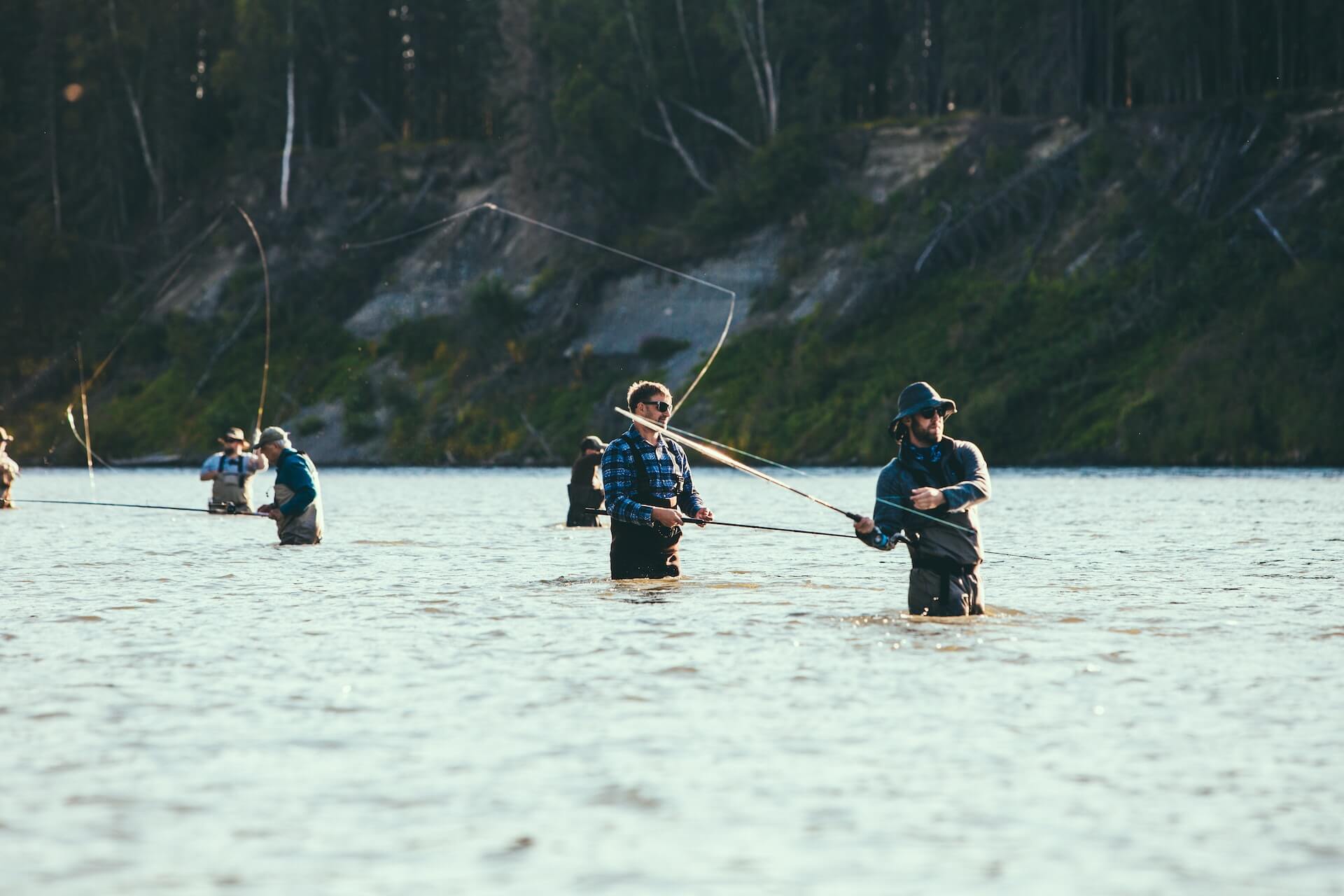
Is There a Fly Fishing Season?
The peak of the fly-fishing season is between April and October. However, if you don’t mind colder weather and water or plan on traveling to warmer destinations, it can be a year-round hobby. That being said, keep in mind that a fly fishing season may depend on whether you’re fishing for a certain species or none in particular since a time of the year can affect the migration patterns.
Overall, there are many different factors that can affect the catch – and determine the best time to test saltwater with this fishing style. With that in mind, I’ve prepared some of the tips you should follow when deciding when to organize your next saltwater fishing trip.
What Is the Best Time to Go Saltwater Fly Fishing? Be Mindful of Saltwater Tides
Let’s go back to school and remember some of the tide-related lessons. Simply put, saltwater tides are caused by the Moon’s gravitational forces and the process of the Moon and the Earth orbiting one another – and they can cause a change in sea levels on a daily basis. Therefore, the rise and fall of a sea level will determine not only the best fishing times but also the best fishing areas. So, when you’re wondering what’s the best time to go fishing next time, make sure to check daily tide charts online or with the help of an app.
I found that I have better success when avoiding a slack tide and fish when tidal periods are pronounced (a slack tide is a time period where the tide is not outgoing or incoming). Remember that when the water is moving, the baitfish is also active – and so is the fish that prey on them. Additionally, the best option is to fish during strong incoming tides since they bring fish toward land.
If you’re fishing in areas with large tidal movements, it’s better to go fishing on a low tide. Fish know that the tide is coming, and they will be moving up aggressively with the tide looking for food. During high tide, on the other hand, fly fishing can be challenging.
Can Different Lunar Phases Affect Your Fishing?
Since there is a strong connection between the Moon and the tides, it’s only natural for different lunar phases to affect the success of fishing – or the lack of it. Due to the strong pull of gravity, tides will be the strongest during the new and full moon, and with a stronger water movement comes more active fish.
However, lunar phases can affect fishing in one more way. Keep in mind that the amount of light from the Moon can influence fish feeding patterns. For example, if you often fish at night, it can be more than just simple luck that you’re experiencing more bites during a full moon. More light will be present on the water during a full moon phase, which makes it easier for some types of fish to see, and, therefore, feed.
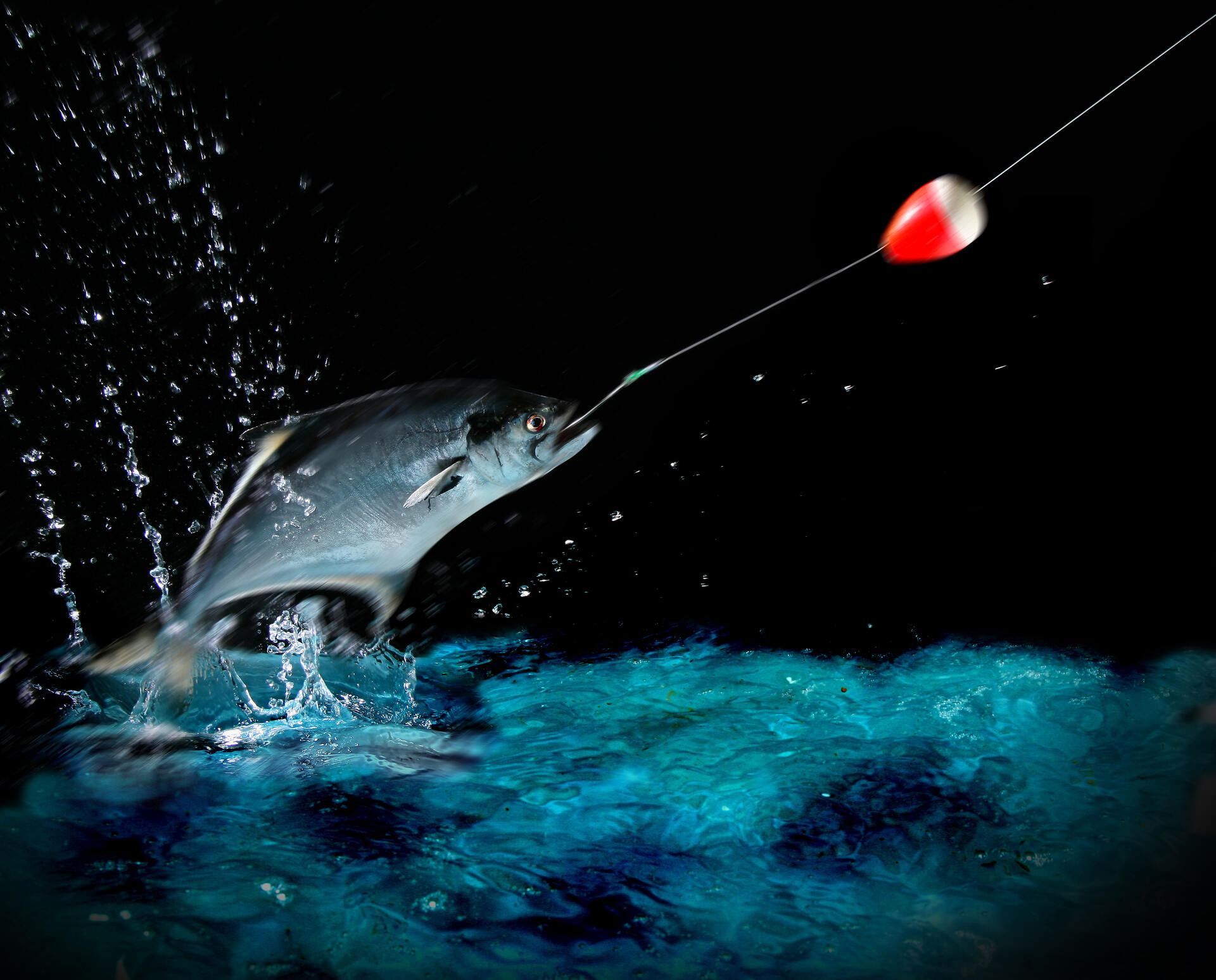
Barometric Pressure and Temperatures Are Also Important
Weather fronts also have a big impact on fish movement – so when it’s the best time for fly-fishing? I guarantee you’ll have the most success if you wait for barometric pressure to drop and for a bit of cloud cover – which is a period before the front comes. After the front passes and brings the change in temperatures, fish will need some time to adapt to the change, so it’s not a good time to wait for a catch.
Is There the Best Temperature for Saltwater Fishing?
Generally, you should have the most success when the saltwater temperature is between 62-82 °F – but that’s if you’re not looking to catch any special fish species. On the other hand, if you’re after a specific species, you need to research the water temperatures during which they are the most active.
Which Time of the Day Should You Choose?
Typically, dusk or dawn are the best parts of the day to start your saltwater fishing escapades but note that it is only an applicable rule if the weather and currents are favorable as well. It’s always better to look at tide charts for the best fishing times than to rely simply on the time of the day.
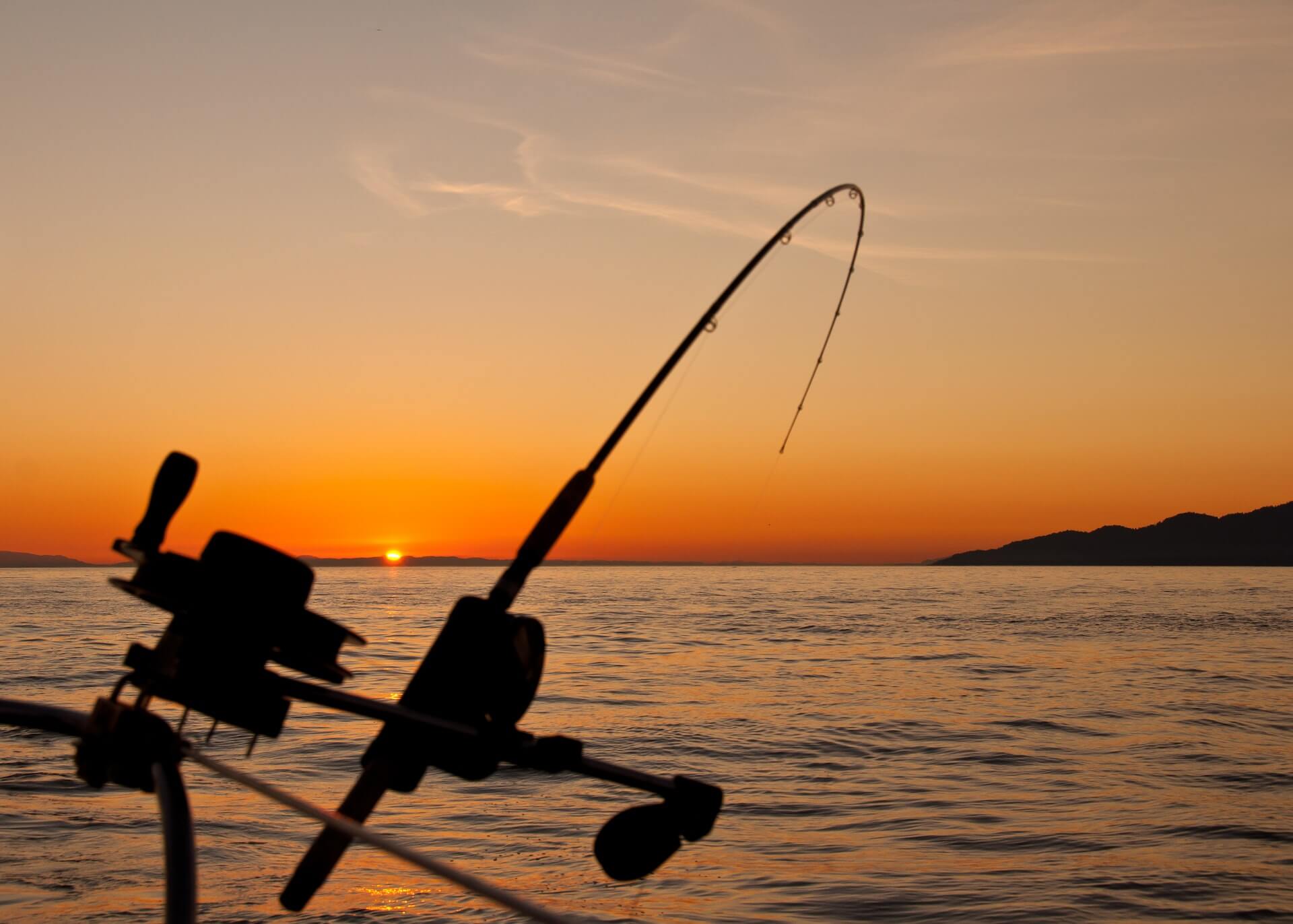
When to Go Fishing During Hot and Cold Months?
During the summer months, fish will become less active and retreat to deeper water, especially during the mid-day, when the temperatures are the highest. That is why the best time for saltwater fly fishing would be late evenings and early mornings. However, when the water becomes colder, it’s just the opposite. During this period, fish will seek warmth – and go to the shallow water to catch some sun during the mid-day. Therefore, fishing in the late morning and afternoon will make the most sense.
That being said, note that you may be lucky if you plan on fishing in the early mornings and late evenings during several first cold fronts – fish tend to be more active during this period which brings them a break from the heat.
Keep an Eye Out for the Migration Patterns
Different fish have different migration patterns. For example, they may vary based on:
- The feeding habits,
- The mating habits,
- Water temperature.
Therefore, if you plan on catching a certain type of fish, you need to know more about its migration patterns to learn when it’s most likely to appear in a certain area.
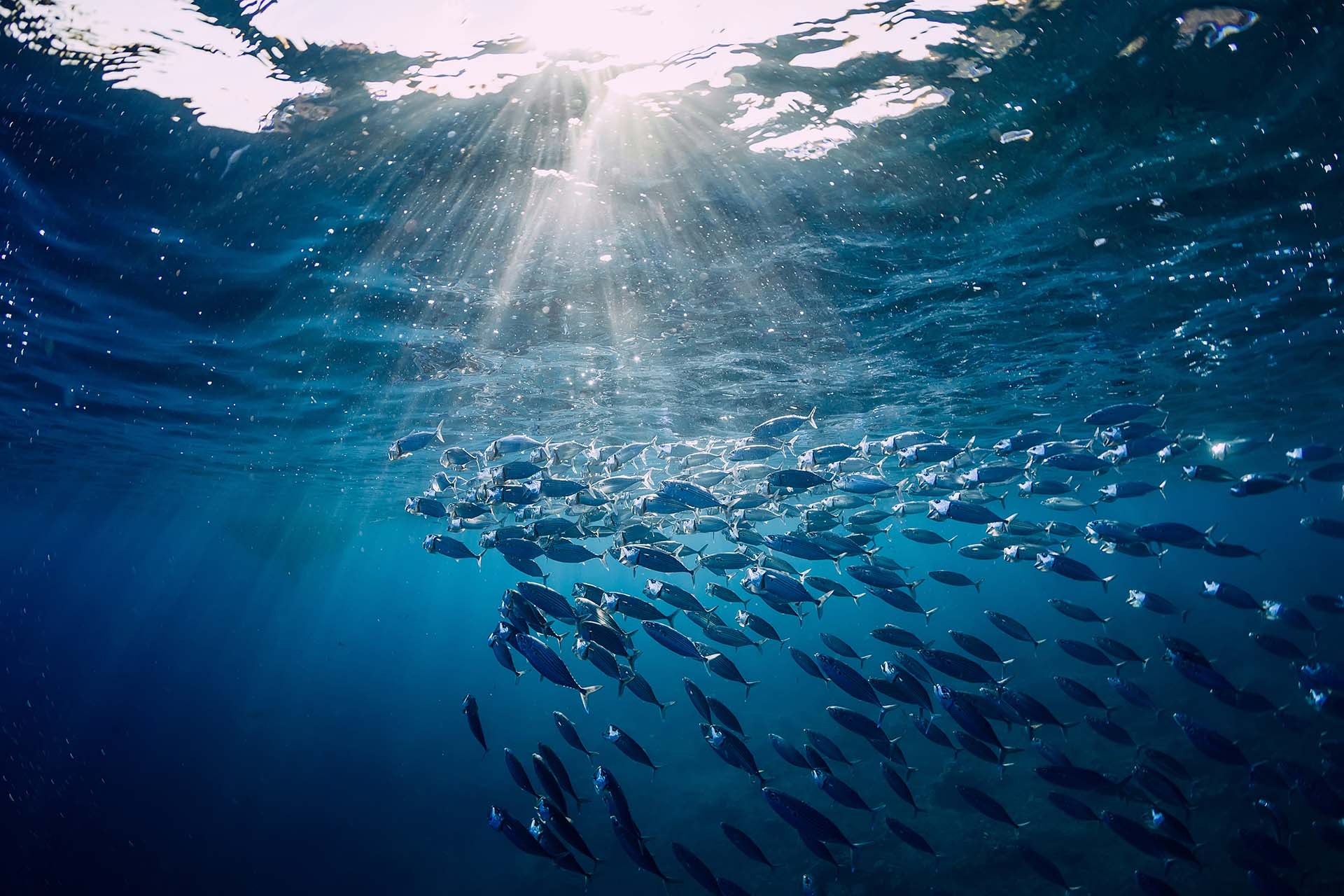
Will Fly Fishing During and After Rain Be a Problem?
Although it may be more inconvenient for you, keep in mind that light rain can increase the bite – especially if you’re fishing during the hot summer months. However, the catch may be negatively affected by prolonged rainy days since too much rain changes salinity and water levels. Based on my experience, the fish bites the best right after the (light) rains stop – so don’t be discouraged if you notice a few drops here and there.
Should You Go Fishing During the Windy Days?
I hate wind, much as every other fisherman I know, so I tend to stay at home during windy days. However, as mentioned earlier, fish tend to be more active and eat during fronts – and winds are often associated with them. If you don’t mind the wind, choose the beginning of the passing fronts to go fishing.
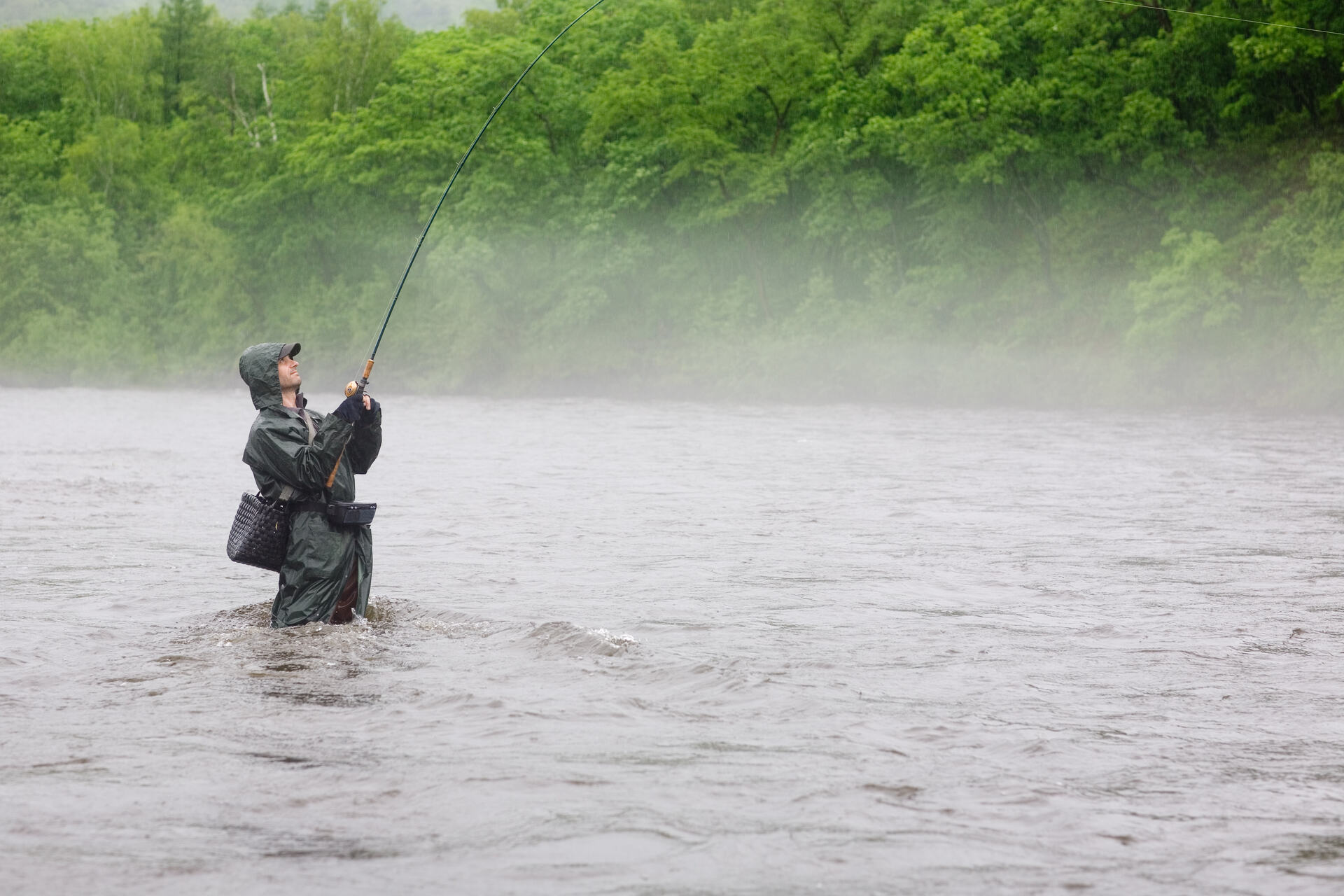
Tips for Fly Fishing in Different Seasons
With the right tools and tips, saltwater fly-fishing can be a sport you can enjoy all year round. The most important thing is to know how to adapt to each different season – and here is how to make the most out of each one.
Spring
Spring often brings unpredictable weather, and, for me, it’s one of the biggest downsides of this season – but you can overcome it by simply being prepared. If you plan on fishing at the beginning of this season, when it’s still cold, I’d advise you to use a nymphing method and get your flies deep since the fish will still be closer to the bottom. Of course, if you go out fishing in warmer weather and notice activity closer to the surface, don’t hesitate to use dry flies instead of nymphs.
Summer
While there is low action during the colder months, warm temperatures are known to make fish lethargic – and more difficult to recover from a fight. Therefore, be certain you keep the fish in the water as much as possible. On the other hand, when it comes to different techniques and fly fishing rods to use in this period, the best solution is to assemble several different options – that way, you can quickly adjust to the fishing technique you need at the moment.
Fall
This season is usually the time when fish come close to the surface, so it’s the best period for dry fly action. It’s a season when fish are starting to get more energy due to the lower heat, but also a time when they start eating more to prepare for winter. If I had to choose a favorite season of my own to go fly fishing, it would be the fall.
Winter
Winter fishing can be fun, but you must be prepared for the cold – and come with warm clothing. That is if you don’t want to organize a fishing trip to warmer destinations. I also found that I have more success if I use a lighter leader and tippet during colder months. On the other hand, know that fishing during cold months requires more patience – so come armed with it.
Now You Can Plan the Right Time for Your Fishing Trip – And Be Certain of Your Success
Whether you plan to fish close to home, visit a friend, or organize a cross-country trip, now you have all the knowledge you need about the exterior factors that may affect the catch. The rest depends on your technique and skill, and these can’t be learned by reading a blog article (although some blogs can be helpful). However, although fly fishing is hard to master, don’t give up! Practice makes it perfect, and you’ll soon be glad you’ve put effort into it.

